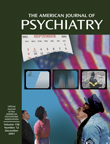Comfort Me With Apples is the continuation of
Gourmet Magazine Editor Ruth Reichl’s story of her life, so ably begun in
Tender at the Bone (1). In that volume she told of her early years in a household shared with her often manic mother and an overwhelmed, passive father who retreated to work, leaving her at home with the problems: “My father, looking apologetic and unhappy, conveniently came up with a big project that kept him in the city.” “I remember watching the way his whole body relaxed as he stepped in [to the elevator], on his way out of the house and off to the world of work.” Her means of dealing with her mother’s mania and apparent inability to taste and/or distinguish pleasant and healthy from bad and spoiled food (27 guests at a fund-raising party were hospitalized with food poisoning) is presaged in the photograph of Ruth at age 7, standing on a chair at the stove, solemn and self-possessed, stirring the pot and preparing the family’s meal. Blessed with useful and important surrogates—her father’s first mother-in-law (Aunt Birdie), her “maid” and companion (Alice), and a binge-drinking housekeeper (Mrs. Peavey)—Ruth learned both to cope and to cook. “They had prepared me for my world.”
Tender at the Bone presented a series of vignettes worthy of the old
Reader’s Digest Most Unforgettable Character series, vivid succinct portraits that left the reader wanting more. It ended with Reichl’s first marriage to a good young version of a surrogate father who could nourish and protect her and insulate her from her mother and her intrusive pathologies and unpredictabilities.
Comfort Me With Apples, which continues Ruth Reichl’s story, can be read as the story of three overlapping interlinked relationships: her first marriage, an affair, and her second husband (“the reluctant gourmet”). Her first husband was affectionate and caring, protective and pleasant, but there was little passion. To borrow language from the other text of her life and books, this first marriage was like a good soup without salt; the affair was almost all spice with little emotional substance; and her current husband a hearty soup, salted, spiced, and with real body, a meal in itself. Despite the miracle of this relationship, it was accompanied by tragic difficulties: unable to become pregnant, Reichl and her second husband adopted and loved a child who was reclaimed by her biological parents. However, Reichl later became pregnant and has a growing son. Interleaved with the story of these relationships is a trip to China, the death of her father, and evidence of her growing autonomy and maturity.
The other text of both books deals with eating, with food, and with the sensual experiences associated with the required act of ingesting. In contrast to her mother, Reichl appears to have been blessed with a taste version of the remarkable phenomenon of perfect pitch: unusual sensitivity, acuity, and memory for smells and tastes. (One can wonder: defensive? reactive? chance?) She moved on from cooking for her family to cooking for a 1970s commune in which she and her husband lived, and then to working in a restaurant. She then became a restaurant critic for West Coast magazines and newspapers and, after a several-year stint at The New York Times, she moved on to Gourmet Magazine. Her writing about food and eating is continually reminiscent of the oyster-eating scene in the 1963 movie of Fielding’s Tom Jones: every bite an erotic promise, a delight for the initiated, a temptation for the naive:
The scrambled eggs with truffles were even better than the foie gras.…Each forkful was like biting off a piece of the sun. It was like musk and light, all at once, and suddenly I burst out, “This is what I always imagined sex would taste like.” Afterward we had raspberry ice cream that was the color of a Renaissance sunset. I held it in my mouth, loath to let the flavor vanish. Just churned, it did not taste as if it had been made by human hands. The cream seemed straight from nature, from happy cows who had spent their lives lapping up berries and sugar.
Comfort Me With Apples is also a history of the last few decades of American cooking: from James Beard and M.F.K. Fisher to Alice Waters and Wolfgang Puck. Each chapter ends with one or several appropriate recipes.
Many years ago, E. James Anthony described a group of children of disturbed mothers who managed to survive multiple traumata and to do well. Ruth Reichl is one of his “dandelions”; she managed to flower in arid soil. She took her talent and her surrogates’ teachings and turned them into a life. As she said of M.F.K. Fisher,
She actually makes you pay attention to your next meal, feel more alive because you’re doing that. When you read her you understand that you need to respect yourself enough to focus on the little things of life. She celebrates the everyday by making it seem momentous.
An apt description of Reichl herself. Read, eat, and enjoy!

